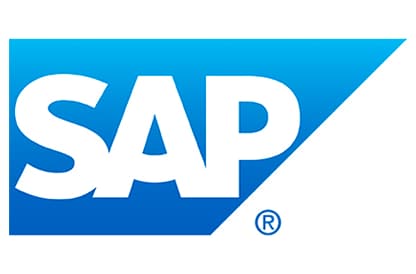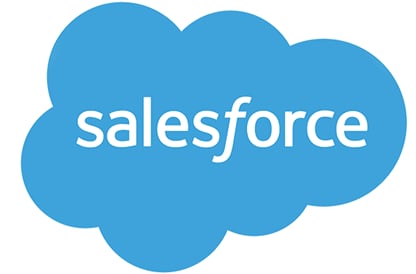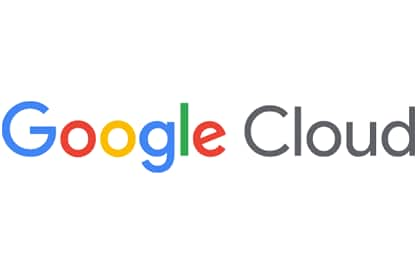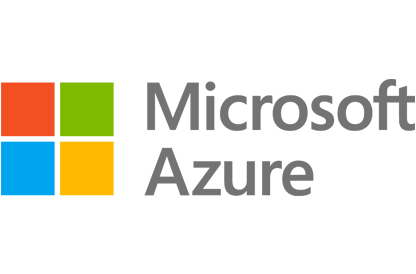What is CMDB?

Overview
A configuration management database (CMDB) serves as the foundation for effective IT management in modern organizations. As IT environments grow increasingly complex, manually tracking infrastructure components becomes nearly impossible. A CMDB automates this documentation process, creating a centralized repository that provides comprehensive visibility into your entire IT ecosystem.

A CMDB is a specialized database designed to store detailed information about an organization's IT assets, their configurations, and their relationships with one another. It functions as a single source of truth for IT service management (ITSM) initiatives, enabling teams to document and manage hardware, software, systems, facilities, and even personnel. Each tracked element within a CMDB is referred to as a configuration item (CI).
CMDB
The real power of a CMDB lies in its ability to map relationships between configuration items, helping IT teams understand dependencies and prevent service disruptions. By offering a panoramic view of the IT infrastructure, a CMDB enables organizations to track changes effectively, identify potential conflicts between interdependent CIs, and maintain service delivery standards even as the environment evolves.
Modern IT departments use CMDBs to store and manage a wide spectrum of information, including:
- Hardware and software inventory details, including specifications, versions, and licensing information. This comprehensive tracking helps organizations optimize their technology investments and ensure compliance with licensing agreements.
- Network infrastructure documentation, that maps connections between physical and virtual components. This visibility is crucial for troubleshooting and planning network changes without disrupting services.
- Configuration settings for individual system components, allowing for standardization across the enterprise and faster recovery in case of failures.
- Historical records of changes made to the system over time, creating an audit trail that supports compliance efforts and helps identify the source of issues when they arise.
- Personnel information related to system ownership, support responsibilities, and access rights, which strengthens security governance and accountability.
How does a CMDB work?
A robust CMDB solution doesn't exist in isolation—it integrates with various discovery tools and system monitoring platforms to automatically gather data across hybrid environments. Modern CMDBs employ discovery mechanisms that continually scan the IT landscape, identifying new components and changes to existing ones without manual intervention.
When functioning optimally, a CMDB maintains an accurate, real-time representation of your IT environment. It doesn't just catalog assets; it maps their relationships and dependencies. This relational understanding proves invaluable when planning changes or troubleshooting issues. For example, before decommissioning a server, a CMDB can show precisely which applications and services depend on it, allowing for proper migration planning.
The CMDB serves as both a historical record and a current snapshot of your infrastructure. When a new server joins your network, the CMDB automatically detects it, adds it to inventory, and establishes its relationships with other components. Similarly, when configurations change, the CMDB tracks these modifications, maintaining a comprehensive change history that supports audit requirements and helps pinpoint the source of performance issues.
What are the benefits of a CMDB?
Organizations that implement a well-maintained CMDB realize numerous operational and strategic advantages:
- Enhanced visibility across complex IT landscapes enables proactive management rather than reactive troubleshooting. IT teams gain a comprehensive understanding of how components interact, allowing them to anticipate the ripple effects of changes before implementation.
- Accelerated incident resolution occurs when support teams can quickly identify affected components and their dependencies. This visibility reduces mean time to repair (MTTR) and minimizes service disruptions that impact business operations.
- Improved change management processes result from understanding how proposed changes might affect interconnected systems. This foresight significantly reduces change-related incidents and unexpected service outages.
- Strengthened compliance posture develops through better documentation and audit capabilities. Organizations can more easily demonstrate adherence to regulatory requirements and industry standards by maintaining accurate records of their IT infrastructure.
- Enhanced security management becomes possible as security teams gain visibility into all assets requiring protection. This comprehensive view helps identify vulnerabilities and ensure consistent application of security controls.
- Informed decision-making for IT investments stems from having accurate data about existing assets, their utilization, and lifecycle status. This insight helps organizations optimize spending and avoid unnecessary purchases.
- Better cross-team collaboration flourishes when all IT groups work from the same accurate information source. This shared understanding reduces conflicts and accelerates project delivery.
Ultimately, a CMDB transforms IT management from a reactive to a proactive discipline, enabling organizations to deliver more reliable services at lower operational costs.
What is the difference between a CMBD and IT Asset Management?
While often mentioned in the same context, CMDB and IT asset management (ITAM) serve distinct yet complementary purposes within an organization. Understanding these differences helps businesses implement both effectively.
ITAM primarily focuses on tracking assets from a financial and lifecycle perspective. It concerns itself with procurement details, depreciation schedules, maintenance costs, and eventual disposal of IT assets. ITAM helps organizations manage the business aspects of technology ownership, including contract management, vendor relationships, and budget planning. Its primary goal is cost optimization and compliance with financial regulations and license agreements.
A CMDB, in contrast, emphasizes the operational and service delivery aspects of IT assets. Rather than focusing on financial attributes, a CMDB documents how components interact to deliver services. It maps dependencies between configuration items, tracks configuration states, and supports change management processes. The CMDB's primary goal is maintaining service reliability through comprehensive technical documentation.
Consider a server as an example of how these systems differ in their approach. In an ITAM system, that server would be tracked primarily for its procurement date, warranty status, maintenance schedule, depreciation value, and eventual replacement timeline. In a CMDB, the same server would be documented for its operating system, installed applications, network connections, configuration settings, and relationships with dependent services.
While distinct, these systems work best when integrated. The financial information from ITAM combined with the technical configuration data from a CMDB provides a complete picture of organizational IT assets, supporting both financial governance and operational excellence.
Streamline your CMDB implementation with OpenText
Creating and maintaining an effective CMDB presents significant challenges, particularly as IT environments grow more complex and dynamic. Manual documentation processes simply cannot keep pace with modern hybrid cloud environments, leading to data inaccuracies that undermine the CMDB's value.
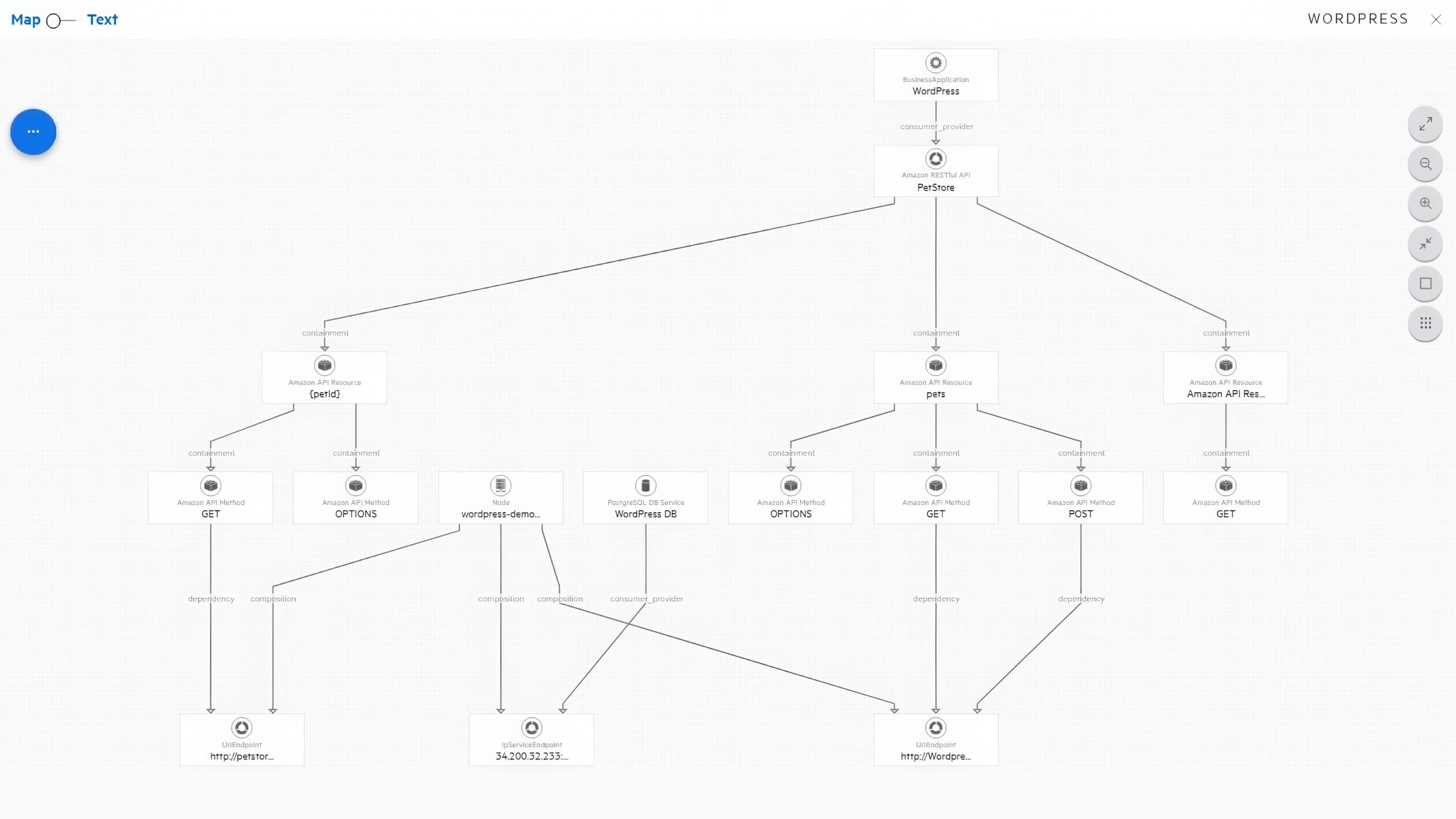
OpenText™ Universal Discovery and CMDB addresses these challenges with a vendor-neutral configuration management solution available as SaaS, on premises, or in the cloud. This flexibility ensures it fits seamlessly into your existing technology ecosystem. Because it works harmoniously with IT tools and platforms already in place, you can easily discover, map, and manage configuration items across your hybrid and multicloud environments without disruptive changes to your operational procedures.
OpenText Universal Discovery and CMDB employs sophisticated discovery mechanisms that automatically identify and document your IT assets across diverse environments. The solution can:
- Automatically collect hybrid IT asset data across multicloud platforms (AWS, Azure, Google Cloud), container environments (Kubernetes, Docker), and traditional on-premises infrastructure.
- Map application dependencies through both agentless and agent-based discovery methods, providing comprehensive visibility regardless of where applications reside.
- Detect changes in near real-time through event-driven updates, ensuring your CMDB remains current even in rapidly changing environments.
- Integrate with existing IT management tools through open APIs and prebuilt connectors, enhancing rather than replacing your current investments.
- Support compliance initiatives by maintaining detailed configuration records and change histories that satisfy audit requirements.
Our solution automates the discovery process across physical, virtual, and cloud environments, ensuring your CMDB stays current without labor-intensive manual updates. Its agentless approach minimizes operational overhead while still capturing comprehensive configuration data. For organizations with strict security requirements, agent-based discovery options provide deeper visibility where needed.
With Universal Discovery and CMDB, your entire IT landscape snaps into sharp focus, empowering you to reduce service disruptions and boost change success rates. The solution's relationship mapping capabilities help teams understand dependencies between components, allowing for more effective impact analysis before changes are implemented. This visibility directly translates to fewer service outages and faster incident resolution when problems do occur.
“We’ve been trying to get real-time information on our
clouds and the event-driven updates that OpenText
Universal Discovery can pull are really important.”
A leading financial institution
This real-time visibility proves particularly valuable in dynamic cloud environments where resources may be provisioned or decommissioned in minutes rather than weeks.
By providing a single, accurate source of truth for your entire IT ecosystem, OpenText Universal Discovery and CMDB transforms how organizations manage their technology assets. It replaces uncertainty with clarity, reactive firefighting with proactive management, and manual processes with efficient automation—all contributing to more reliable services at lower operational costs.
How does CMDB support ITIL?
The Information Technology Infrastructure Library (ITIL) framework provides best practices for aligning IT services with business needs, and a CMDB serves as a crucial enabler for many ITIL processes. Understanding this relationship helps organizations maximize the value of both their CMDB implementation and ITIL adoption.
At its core, ITIL promotes a service-oriented approach to IT management, and a CMDB provides the foundational data needed to support this perspective. By documenting how configuration items combine to deliver specific services, the CMDB makes abstract ITIL concepts concrete and actionable.
Several key ITIL processes depend heavily on CMDB data:
- Incident management benefits from CMDB relationship mapping, which helps support teams quickly identify the root cause of service disruptions. When an incident occurs, technicians can use the CMDB to understand which components might be involved and how they relate to affected services.
- Change management relies on CMDB data to assess the potential impact of proposed changes. Before implementing a change, teams can analyze dependencies and identify stakeholders who might be affected, reducing the risk of unexpected service disruptions.
- Problem management uses historical CMDB data to identify recurring issues and their underlying causes. By analyzing patterns in incident reports alongside configuration data, organizations can address systemic problems rather than just treating symptoms.
- Service level management depends on the CMDB to define the components that support specific services and their agreed performance levels. This visibility helps organizations prioritize support resources based on service importance.
- Configuration management, a core ITIL process, revolves around maintaining the CMDB itself. This process ensures that the database remains accurate, which in turn supports all other ITIL processes.
By serving as the central repository for infrastructure information, a well-maintained CMDB transforms ITIL from a theoretical framework into a practical approach for improving service delivery and aligning IT operations with business objectives.
What are the capabilities of a CMDB?
Modern CMDBs offer sophisticated capabilities that extend far beyond simple asset inventory management. Understanding these capabilities helps organizations leverage their CMDB investment to its fullest potential.
Automated discovery represents perhaps the most critical capability of contemporary CMDBs. Rather than relying on manual data entry, advanced systems continuously scan the network to identify new devices, software installations, and configuration changes. This automation ensures data accuracy while significantly reducing administrative overhead.
Relationship mapping differentiates a true CMDB from a basic asset register. By documenting how configuration items depend on each other, CMDBs provide context that proves invaluable during impact analysis. These relationship maps often appear as visual diagrams that help teams understand complex interconnections at a glance.
Service modeling capabilities allow organizations to define which configuration items support specific business services. This service-oriented view helps prioritize incidents and changes based on business impact rather than technical considerations alone.
Change-tracking functions record modifications to configuration items over time, creating a historical record that supports audit requirements and helps diagnose issues. When problems arise, teams can review recent changes that might have contributed to the situation.
Integration with other IT management tools amplifies the value of CMDB data. Modern systems offer APIs and prebuilt connectors to service desks, monitoring tools, security platforms, and cloud management systems, ensuring that accurate configuration data flows throughout the IT ecosystem.
Customization options allow organizations to adapt the CMDB to their specific needs—for example, defining custom attributes for configuration items, creating specialized relationship types, or developing unique visualization approaches for different stakeholder groups.
Compliance reporting helps organizations demonstrate adherence to regulatory requirements and internal standards. By documenting configuration states and changes, CMDBs provide the evidence needed for successful audits across various frameworks including SOX, HIPAA, and ISO 27001.
What are the characteristics of effective CMDBs?
Not all CMDBs deliver equal value. The most effective implementations share several key characteristics that organizations should consider when evaluating or improving their configuration management approach:
- Accuracy stands as the foundational characteristic of an effective CMDB. If teams don't trust the data, they won't use the system. Leading organizations achieve accuracy through automated discovery, robust change management processes, and regular data validation exercises.
- Comprehensiveness ensures the CMDB covers all relevant aspects of the IT environment. This coverage includes on-premises infrastructure, cloud resources, network components, applications, and even nontechnical assets that support service delivery. A fragmented view provides limited value.
- Currency reflects how well the CMDB keeps pace with ever-changing IT landscapes. Effective systems update in near real-time, ensuring decisions are based on current information rather than outdated snapshots.
- Usability determines whether stakeholders actually leverage CMDB data in their daily work. The most valuable systems offer intuitive interfaces, role-specific views, visual relationship maps, and seamless integration with common workflow tools.
- Scalability allows the CMDB to grow alongside the organization without performance degradation. This characteristic becomes increasingly important as environments expand to include thousands or even millions of configuration items.
- Flexibility enables the CMDB to adapt to evolving business needs and technological changes. This flexibility includes supporting new asset types, relationship models, and integration requirements as they emerge.
- Governance establishes clear ownership, processes, and quality standards for CMDB data. Effective implementations define who can modify different information types, how changes are approved, and how data quality is measured and maintained.
Organizations that prioritize these characteristics typically realize greater returns on their CMDB investments, transforming what could be merely a technical inventory into a strategic asset that drives operational excellence.
What are CMDB best practices?
Implementing and maintaining a successful CMDB requires thoughtful planning and ongoing attention. Organizations that follow these best practices typically achieve greater value from their configuration management efforts:
- Start with clear objectives rather than jumping directly into implementation. Define specifically what business and technical outcomes you want to achieve through your CMDB. This clarity helps guide decisions about scope, tool selection, and process design.
- Implement in phases instead of attempting to document everything at once. Begin with critical services and their supporting infrastructure, then gradually expand coverage as processes mature. This approach delivers value sooner while allowing teams to learn and adjust their methodology.
- Focus on relationships, not inventory. The true power of a CMDB lies in understanding how components connect to deliver services. Ensure your implementation captures these dependencies accurately rather than simply cataloging assets.
- Automate discovery wherever possible to maintain accuracy without overwhelming staff with manual data entry. Modern tools can identify most infrastructure components automatically, though some verification will still be necessary.
- Integrate change management processes with your CMDB to ensure the database reflects approved modifications. Without this integration, the CMDB quickly becomes outdated as the environment evolves.
- Establish clear data ownership by assigning responsibility for different CI types to specific teams or individuals. This accountability helps maintain data quality over time and provides clear escalation paths when discrepancies arise.
- Regularly validate data accuracy through automated comparisons between discovered states and recorded configurations. Address discrepancies promptly to maintain trust in the system.
- Provide role-specific training that helps stakeholders understand how the CMDB supports their specific responsibilities. Generic training often fails to demonstrate relevant value, leading to poor adoption.
- Measure and communicate value by tracking how the CMDB contributes to improved incident resolution times, reduced change failures, better compliance outcomes, and other business benefits. This visibility helps maintain executive support for configuration management initiatives.
By following these practices, organizations can transform their CMDB from a technical requirement into a strategic asset that improves service delivery and supports business objectives.
What are future trends of CMDBs?
As technology landscapes continue to evolve, CMDBs are adapting to meet new challenges and opportunities. Understanding these trends helps organizations future-proof their configuration management approach:
- AI-powered automation represents perhaps the most transformative trend in CMDB evolution. Machine learning algorithms increasingly help identify configuration patterns, detect anomalies, predict potential issues, and even suggest optimization opportunities. This intelligence reduces manual effort while improving data accuracy and insight quality.
- Cloud-native CMDB architectures are emerging to address the dynamic nature of modern environments. Traditional CMDBs struggled with ephemeral resources that might exist for only minutes or hours. Next-generation solutions embrace this fluidity, capturing relationships between containers, serverless functions, and microservices despite their transient nature.
- Service mesh integration allows CMDBs to automatically capture dependencies between microservices by tapping into the service mesh layer, which already tracks these relationships for routing purposes. This integration provides unprecedented visibility into complex application ecosystems.
- Security posture awareness is becoming a standard CMDB feature as organizations recognize the value of combining configuration data with vulnerability information. Modern systems map potential security weaknesses to affected services, helping teams prioritize remediation efforts based on business impact.
- Business service management capabilities continue to mature, helping organizations understand not just technical relationships but also how infrastructure components support specific business outcomes. This service-oriented view helps align technical decisions with organizational priorities.
- Digital twin functionality enables simulation and modeling based on CMDB data. Organizations can test potential changes in a virtual environment before implementing them in production, significantly reducing the risk of service disruptions.
- Integration with DevOps toolchains ensures configuration data remains accurate in highly automated environments. By connecting with infrastructure-as-code repositories, deployment pipelines, and container orchestration platforms, next-generation CMDBs maintain relevance in fast-moving development contexts.
Organizations that monitor these trends and adapt their configuration management approach accordingly will be better positioned to maintain service reliability despite increasingly complex and dynamic IT landscapes.
Building a strong foundation for IT service management
As organizations embrace digital transformation, their IT environments continuously evolve and grow more complex. This constant change creates significant challenges for IT teams responsible for maintaining service reliability and supporting business initiatives. How can you establish and maintain control amid this perpetual evolution?
A properly implemented CMDB serves as the cornerstone of effective IT service management (ITSM). By providing accurate visibility into your entire IT ecosystem, a CMDB enables consistent service delivery even as underlying technologies change. This foundation proves particularly valuable during major transformations such as cloud migrations, application modernization initiatives, or merger integrations.
The CMDB's role extends beyond simple asset tracking to become the authoritative information source that powers multiple ITSM processes. When incident management teams need to understand affected components, they turn to the CMDB. When change advisory boards evaluate proposed modifications, they rely on CMDB data to assess potential impacts. When security teams respond to vulnerabilities, they leverage the CMDB to identify affected systems.
This central role makes CMDB accuracy particularly critical. Outdated or incomplete configuration data can lead to poor decisions, extended outages, failed changes, and security oversights. Organizations committed to service excellence recognize that CMDB quality directly influences ITSM effectiveness across all disciplines.
Building this strong foundation requires more than just implementing a database—it demands thoughtful planning, automated discovery capabilities, integration with existing tools, and ongoing governance to maintain data quality. By treating your CMDB as a strategic asset rather than a technical requirement, you create the solid foundation that enables ITSM success in today's dynamic IT landscape.
